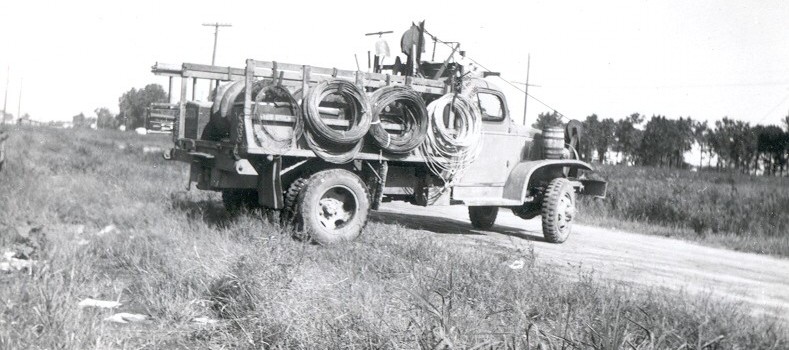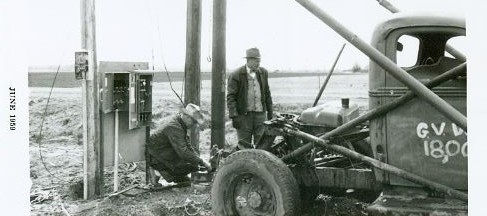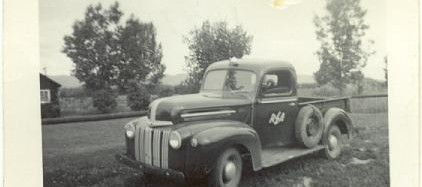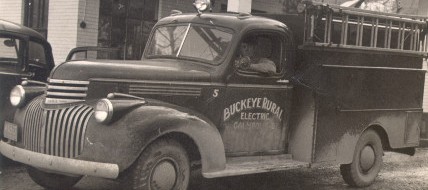Buckeye Rural Electric Cooperative's roots stretch back more than 70 years.
In the 1930s, only residents of cities and larger towns in Southeastern Ohio had access to central station electric power. Power companies and municipal utilities viewed rural areas as too costly to serve, both in terms of difficulty and expense to run lines and the possible profit from lightly populated farming communities.
This wasn't solely an Ohio problem. Across the United States, rural residents lived much like their frontier ancestors. Without labor-serving electricity, country folks worked hard, aged fast, and died early due to the rigors of a lifestyle that had changed little since the 1800s.
Cooking was done on wood stoves; oil lamps lighted homes (and people truly "went to bed with the chickens"); food spoiled easily due to lack of refrigeration; fields were tilled and crops planted with mule, horse, or ox power, and poor sanitary conditions affected water supplies and the ability to bathe, launder clothing or even slake your thirst.
Diseases were rampant, from hook and pin worm infestations - common and relatively minor maladies during the era - to more serious illnesses, including malaria, typhoid fever, and polio.
The availability of electricity in rural America changed all of this for the better. The rural electric program, launched from President Franklin Delano Roosevelt's New Deal, is today considered a watershed event in rural development. The electrons zipping over lonely miles of copper wire illuminated dark farmhouses, operated well pumps, caused electric range eyes to glow red and ice box compressors to cool, heated water for washing dirty bodies and clothes, operated meal grinders and conveyor belts . . . In short, the availability of electricity in rural America changed life forever.
Little wonder that the story is still told about the Tennessee farmer testifying at a church revival in the early 1940s. He said: "Brothers and sisters, I want to tell you this. The greatest thing on earth is to have the love of God in your heart . . . And the next greatest thing is to have electricity in your house!"
Rural electric cooperatives (RECs) were new and innovative things in the mid-1930s. This is when groups of rural residents gathered to organize Buckeye REC. The co-op was incorporated September 3, 1938, in Gallipolis, Ohio, under the Rural Electrification Administration (old REA) Act as a member-owned, not-for-profit cooperative. Prior to this milestone, however, a great amount of planning and praying occurred. Community meetings were held at which rural residents agreed to support the formation of an electric cooperative. Next, signatures had to be obtained from those wanting to become charter members, and the necessary rights-of-way had to be obtained from landowners. Finally, the co-op was incorporated with an elected Board of Trustees to serve the interests of the membership. After the groundwork was laid, Buckeye REC's first Board of Trustees voted in favor or an REA loan with which to start construction.
In the early days, the work of extending power lines into rural areas was done mainly by hand. Often, mules and horses were used to drag poles and electric lines up steep hillsides or to ford creeks. Gradually, the backbone of the Buckeye REC system was built, and over the years the co-op expanded into parts of nine counties where it continues to serve.
The co-op's offices and headquarters for the first 50-plus years were in the "Old French City," Gallipolis. In 1993, Buckeye REC purchased the former Southwestern High School and associated property on State Route 325, South, outside Rio Grande. The school buildings were remodeled into a headquarters complex and operations center, and the new facilities were occupied in November of 1994.




